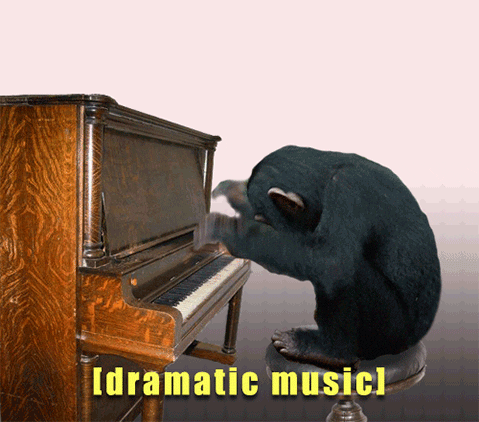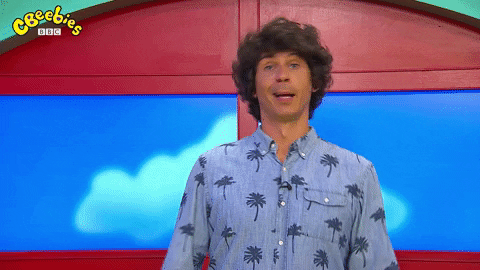The Problem of Endings
So we've slogged through creating the characters, the world, the plot and only one thing is left: the ending. I can hear the dramatic music in my head.

(http://giphygifs.s3.amazonaws.com/media/8nhgZZMKUicpi/giphy.gif)
Now, I don't know about you, but the ending can make or break a story for me. A bad ending can strip away all the pleasure I've felt during the book/film/tv show and destroy it for me. This makes writing them somewhat stressful.
Endings are hard!
Hands up who has had something ruined by a terrible ending (and I don't mean just tragedies, which I understand some people love). I'm more talking about endings that don't make sense, or are simply flat.

(https://media.giphy.com/media/fHcfN8Sj7xh5w21BUC/giphy.gif)
We've all done it, writers, haven't we, plotted and schemed and come up with things we love and then ... the big question comes of how to finish it.
One day we don't have an ending at all, then suddenly we have two, possibly three, and we're not sure which way to go.
I've heard it said by some that a surprising ending is the best, but I have to disagree. Too many times a show, book or film has come up with a surprising ending that's just terrible. Just because no one was expecting it, does not make it an instant classic. There are of course times when surprise endings are wonderful, but not just because they are a surprise!
There are many things to take into account for a good ending, and these are some of the things I think about.
⌛An ending needs a payoff - we've dragged our readers through trials and tribulations, through twists and turns and the ending is where they get their reward. It does not have to be the conclusion of everything, but we can't skimp on what we have promised. This is most important in a series because there is a balance. We have to make sure there is enough for our readers to want to continue to the next part, but if we don't give them enough of a payoff in the current one they're going to be upset with us anyway.
⌛An ending needs to be true to our characters - this is where the surprise ending sometimes fall flat. It's all well and good giving our audience a shock, but if that shock betrays the characterisation of our protagonists, they're unlikely to enjoy it. For example, having character A be the level headed and sensible one all the way through, with no hint of anything bubbling under the surface, and then having them doing something completely nuts right at the very end might be fun for the writer, but the observer will want to brain us. (The operative words above being 'no hint', because it's an entirely different matter if all the ground work is laid - a big finish like that where the audience goes - oh, wow, of course, should have seen that coming, can be the best).
⌛A Deus ex Machina is usually a really bad idea. Bringing in something or someone completely new to fix everything is likely to really annoy our audience. This is a classical term, so they have their place or they wouldn't have been around so long, but usually this is bandied about as detrimental these days. Of course it can be done, but there better be a really, really good reason for it.
⌛An ending can't be too easy - I'm all for the happy ending, in fact I all but insist on it, but if getting to that happy ending is too easy, there is no satisfaction when it arrives. This probably boils down to us making sure our protagonist doesn't waltz to the finish line without taking some serious knocks over the last hurdle (be they physical or mental or abstract).
⌛An ending should not be too drawn out - I was watching a brilliantly scary horror movie the other day (watch through the fingers scary), that had this huge climatic ending, that it turned out wasn't actually the ending because there were 25mins left of the film and a whole other ending to come too. This totally derailed the scariness. So as a rule, the big finish should be the big finish. Now I'm not saying there can't be a round up and a finish off, even an epilogue, just that we shouldn't end it with a big climax and then end it again unless we're actually trying to keep building the tension.
There are many different ways of writing a story, and many different tropes, setups and approaches, but the above ideas seem to apply in some form to most of them.
Personally, my perfect ending is good for the characters ( Boromir dying and Han getting frozen in carbonite had big effects on me as a child, okay, I need happy endings - there is a reason Game of Thrones is so not my thing 😉), leaves some questions hanging, but not the big ones the particular story asked, and has a little bit of a twist as well.
What is your perfect ending like? Does it have to have certain elements?
Bạn đang đọc truyện trên: AzTruyen.Top